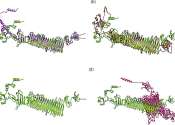New software paves the way for finding bacteriophages to control bacteria
A new bioinformatics software program at Flinders University is paving the way for a rapid expansion of research into bacteriophages, the viruses or phages that play key roles in controlling bacteria.









